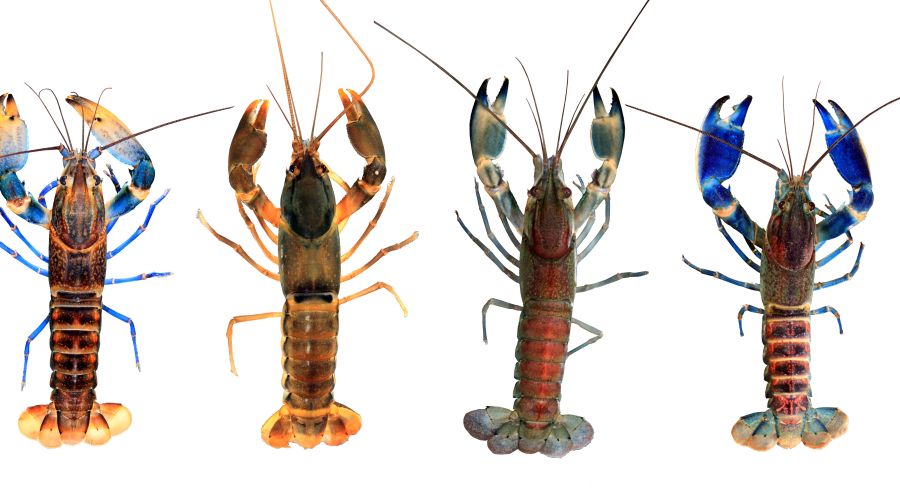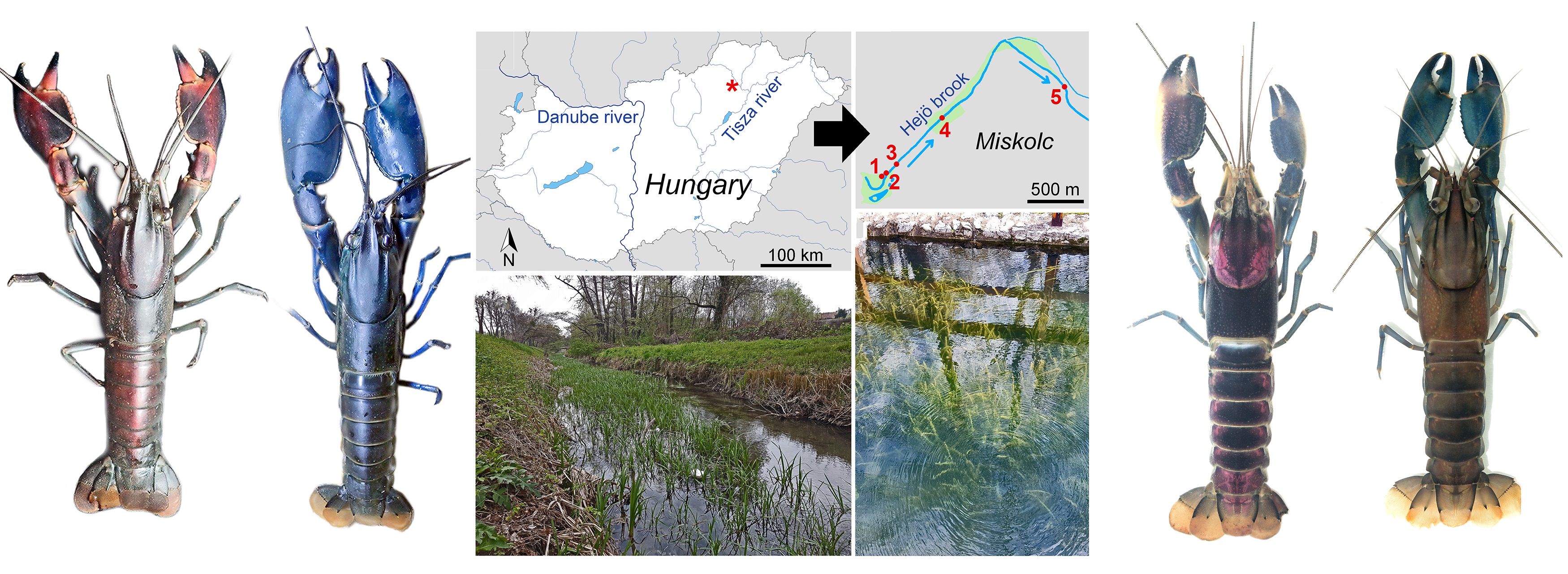Thermal waters: an attractive place for unwanted aquarium pets

The introduction of non-native species is a problem that causes significant biodiversity and socio-economic losses worldwide. The freshwater pet trade is one of the primary sources of the introductions – intentionally and accidentally – of non-native species and escapes of traded organisms. The fact that most of these traded species, mainly crustaceans and fish, is of tropical origin and, in our climate, cannot survive the adverse winter period for a long time may be of little consolation to the inhabitants of the temperate zone. It is a poor consolation because some organisms can adapt admirably to adverse conditions or, as in our case, they appear where the adverse temperature conditions don’t matter.
Together with Hungarian colleagues, we focused on and monitored the thermal waters in the vicinity of large towns in Hungary, Budapest and Miskolc. During the three seasons, we identified representatives of freshwater shrimps, with a well-established population of Neocaridina denticulata and the occurrence of four other species (Caridina babaulti, Atyopsis moluccensis, C. gracilirostris and C. multidentata). The three later species were recorded for the first time in the European wild. Additionally, we found non-native crayfish species already distributed in Europe (Procambarus virginalis and P. clarkii), but also Cherax species originating in Australia and New Guinea (C. quadricarinatus, C. boesemani, C. snowden) and other four scientifically undescribed species of this genus.
Our study highlights the attractiveness of thermal waterbodies in the temperate zone to release unwanted freshwater pets, and the ornamental aquaculture with the related pet industry to be important sources of non-native species in general. The awareness of the possible consequences of releasing non-native ornamental animals was found to be generally poor amongst aquarium hobbyists, pet shop owners and traders. The education of the general public that deals with responsible pet ownership is therefore needed.
Detailed information can be found in our original articles:
- Bláha, M., Weiperth, A., Patoka, J., Szajbert, B., Balogh, E.R., Staszny, A., Ferincz, Á., Lente, V., Maciaszek, R., Kouba, A., 2022. The pet trade as a source of non-native decapods: the case of crayfish and shrimps in a thermal waterbody in Hungary. Environmental Monitoring and Assessment 194(10), 795. https://doi.org/10.1007/s10661-022-10361-9
- Weiperth, A., Bláha, M., Szajbert, B., Seprős, R., Bányai, Z., Patoka, J., Kouba, A., 2020. Hungary: a European hotspot of non-native crayfish biodiversity. Knowledge and Management of Aquatic Ecosystems 421, 43. https://doi.org/10.1051/kmae/2020035

Written by: doc. Ing. Martin Bláha, Ph.D.
